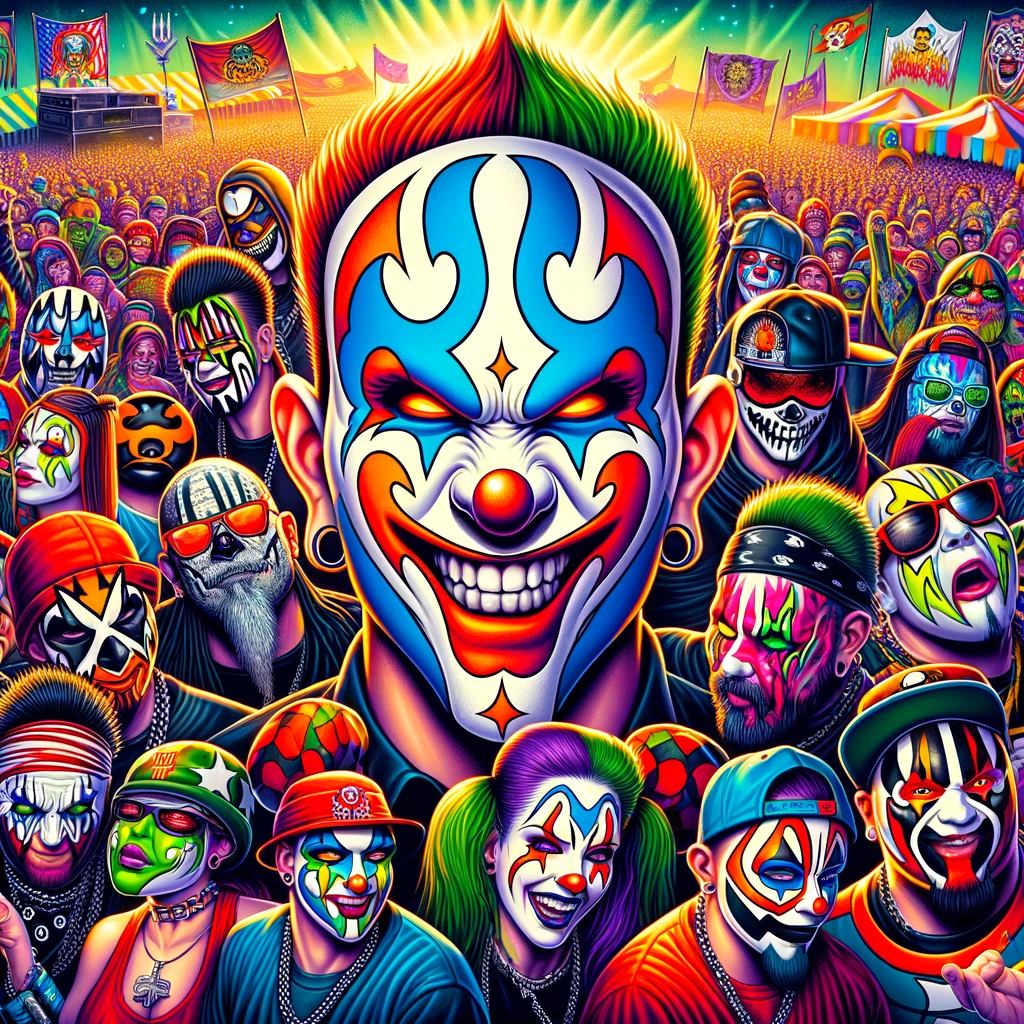Juggalos: A Unique Cultural Phenomenon Within the Music Subculture
Posted on February 3, 2024
Music
Title
"Juggalos: A Unique Cultural Phenomenon Within the Music Subculture"
Introduction
What do clowns, obscenely catchy hip-hop, and the loyal fan-base of the Insane Clown Posse (ICP) have in common? Juggalos! In today's post, we dive head-first into the wild, expressive, and misunderstood world of Juggalos: a unique cultural phenomenon within the music subculture. Our aim is to strip down the stereotypes associated with this vibrant collective and give credit to a lesser-known subset of music aficionados that has rapidly grown in size, complexity, and versatility. Let's break some barriers and dive into the unexplored!
Main Body
Who are the Juggalos?
Juggalos are self-identified fans of the band Insane Clown Posse (ICP), an American hip-hop duo known for their over-the-top theatrical performances involving clown makeup and outlandish appearances. The term 'Juggalos' was officially introduced by the band during a 1994 concert when referring to their fan base.
The History of Juggalos
The subculture originated in the 1990s, with most Juggalos being located in the U.S. However, today, it has gone global, with a position in countries like Italy, Russia, and the UK, owing to the hardcore ethos and countercultural stance that ICP adopts. Their main aim: to stick together, have a blast, and express their individuality without fear of judgment or ridicule.
Shared Symbols and Traditions of Juggalos
Juggalos have their own unique set of shared symbols and traditions. They are particularly known for their elaborate face painting: a mix between traditional clown makeup and a heavy metal-inspired look. Furthermore, the annual Gathering of the Juggalos, a multi-day music festival, and Juggalo Championship Wrestling (JCW) are significant communal activities embodying the lively spirit and unity of the Juggalo subculture.
Symbols like the "Hatchetman," ICP's logo, are central to the Juggalo identity. This icon is often tattooed, worn as jewelry, or displayed on car decals, symbolizing the lasting loyalty and affiliation to the band and the community.
Juggalos and the Society
The Juggalos have often been misunderstood and misrepresented over the years, at times considered as gang members by certain law enforcement agencies due to a few isolated incidents. But many others see Juggalos as a supportive, tight-knit community that provides acceptance and friendship to individuals who might feel excluded elsewhere.
Rewriting the Juggalo Narrative
Despite the criticism, this community continues to flourish, basking in their love for clown-themed music and a zest for life that challenges societal norms. The American Civil Liberties Union (ACLU) has come out in strong support, defending the rights of Juggalos and pushing back against unfair portrayals.
Conclusion: A Closer Look at Juggalos
The aim of this blog was not just to introduce the world of Juggalos but also to challenge prevalent misconceptions. As we diverge from conventional fandoms, we find resilient communities like the Juggalos, a perfect blend of music, art, loyalty, and acceptance. It is a living testament to the diversity within music subcultures, proving yet again that music is a universal language, not restricted by societal boundaries but rather, embraced with open arms and faces painted in defiance.
Additional Elements
-
Bullet Points: The Juggalo Lexicon
- Hatchetman: Official logo of ICP, often used to signify the identity of a Juggalo.
- Faygo: A brand of soda popular within the Juggalo community. ICP often sprays it over the crowd during their performances.
- The Gathering: Refers to The Gathering of the Juggalos, an annual music festival initiated and headlined by ICP.
- Woop Woop: A popular greeting or affirmation among Juggalos.
-
Numbered List: Important Dates in the History of Juggalos
- 1991: Insane Clown Posse (ICP) formed by Joseph Bruce and Joseph Utsler.
- 1994: The term 'Juggalo' officially introduced.
- 2000: The first Gathering of the Juggalos held.
- 2012: Juggalos classified as a "loosely organized hybrid gang" by the FBI, sparking controversy.
-
Blockquotes:
"Juggalos often come from rough backgrounds themselves—the term originated with Detroit's inner-city poor—and the events are a chance for them to bond over their shared experiences." - Keagan LeJeune, Juggalo expert.
-
Data/Statistics:
- According to a 2014 report by Camille Dodero, there were an estimated 1 million self-identifying Juggalos across the U.S at that time.
- Despite the controversial FBI classification, official crime reports linked to Juggalos between 2011 and 2013 number less than 0.02% of the total Juggalo population, as per the Juggalos' own research.
Conclusion
The journey of Juggalos isn't simply about music fandom; it's a cultural phenomenon that transcends the echoes of a concert hall. From developing a unique set of symbols and traditions to creating a thriving, supportive community, the Juggalos continue to rewrite the narrative of what it means to be a fan while battling misconceptions.
Above all, the Juggalo phenomenon reiterates the transformative power of music—how it brings together people from diverse backgrounds and anchors them in a shared identity and unconditional acceptance. This just underlines the lesson that in any subculture, be it metalheads, Beliebers, or Juggalos, there's always more than meets the eye.
As we wrap up, allow yourself to take a step back from conventional understanding. Let's explore unfamiliar territories—question, learn, and be ready to understand. After all, every fanbase tells its own unique story that's worth listening to.
In the comments below, share your thoughts and perceptions about the Juggalo culture. What other music subcultures intrigue you? Let's keep breaking boundaries and appreciating the diverse landscape of music fandom.

